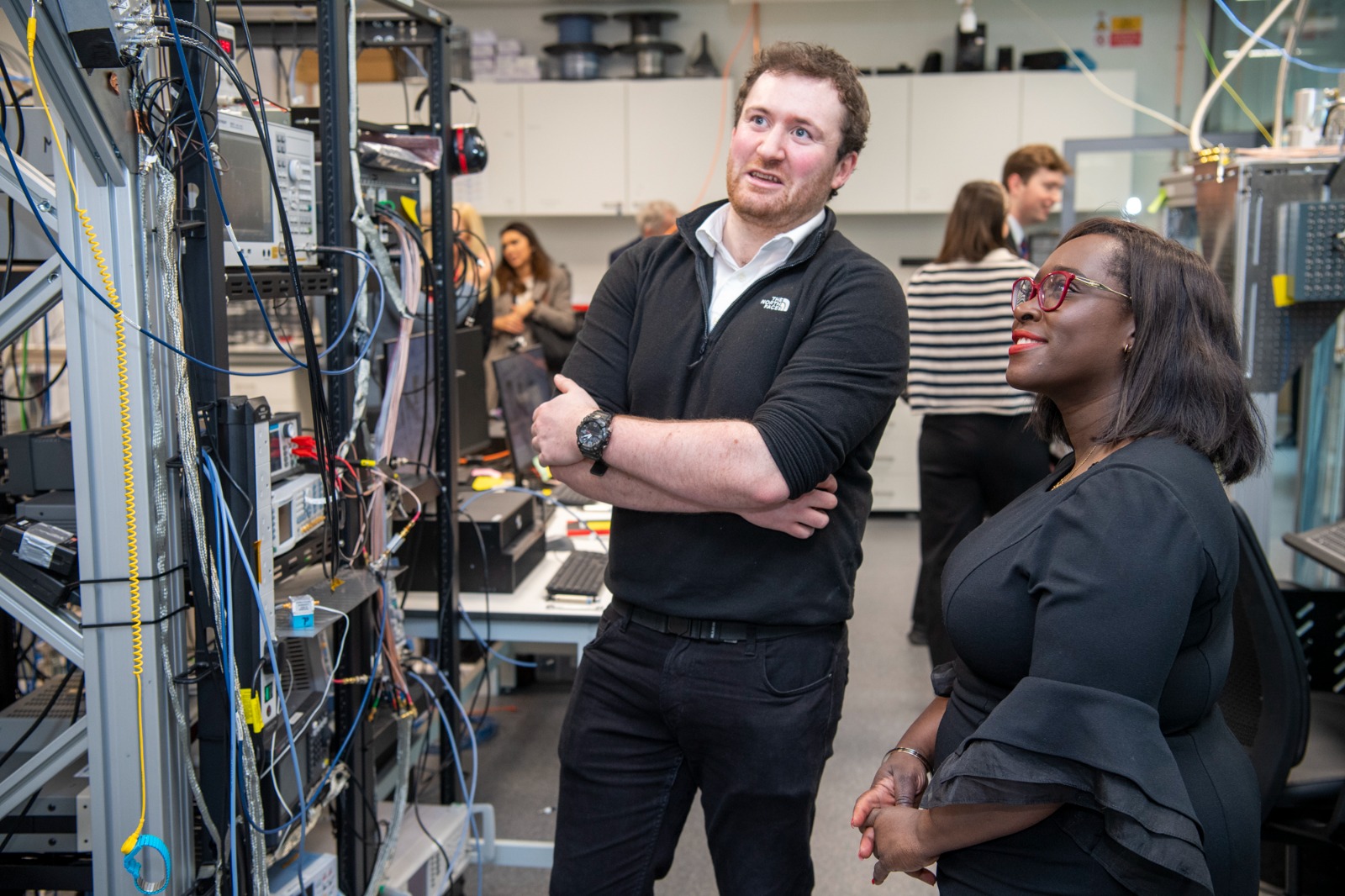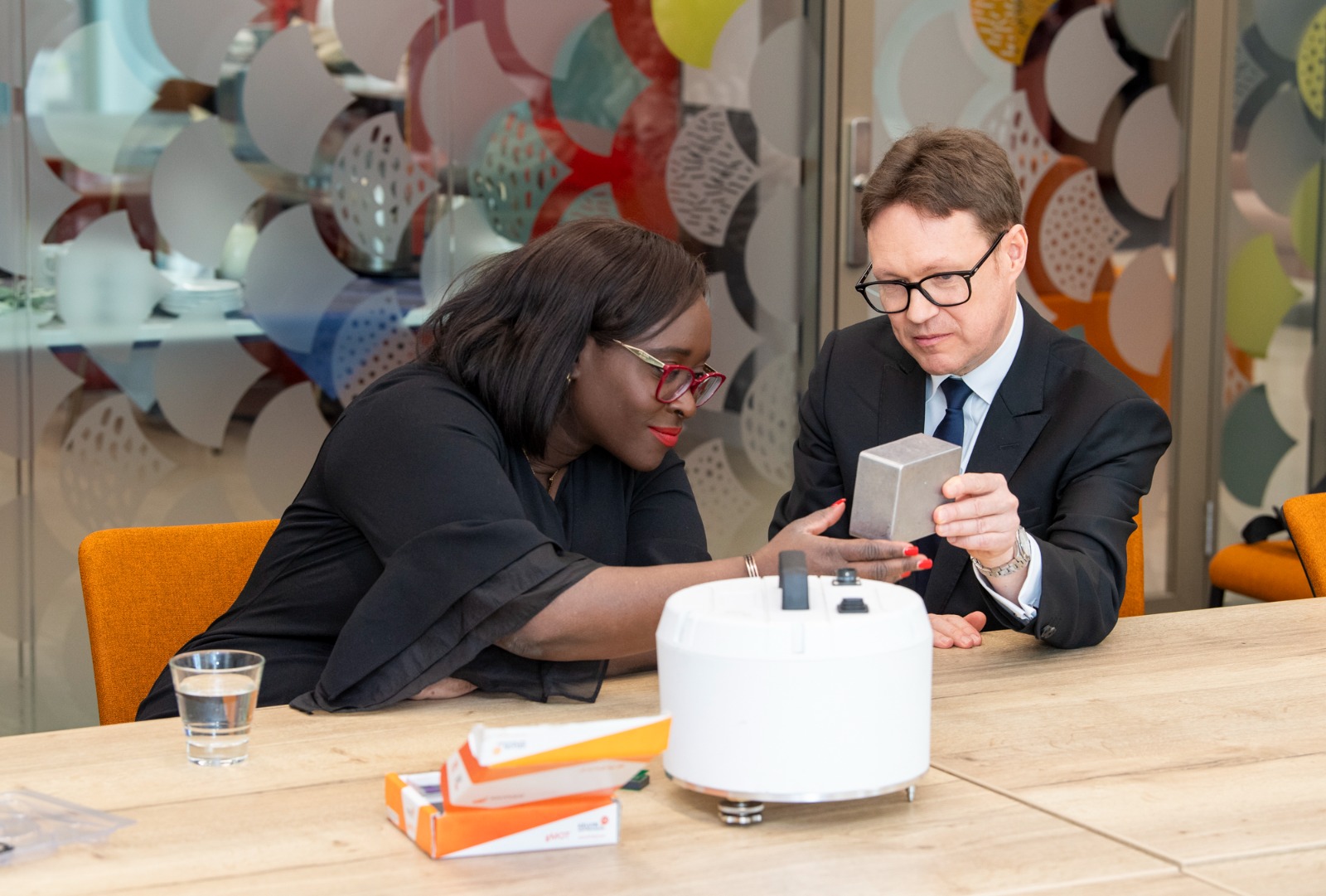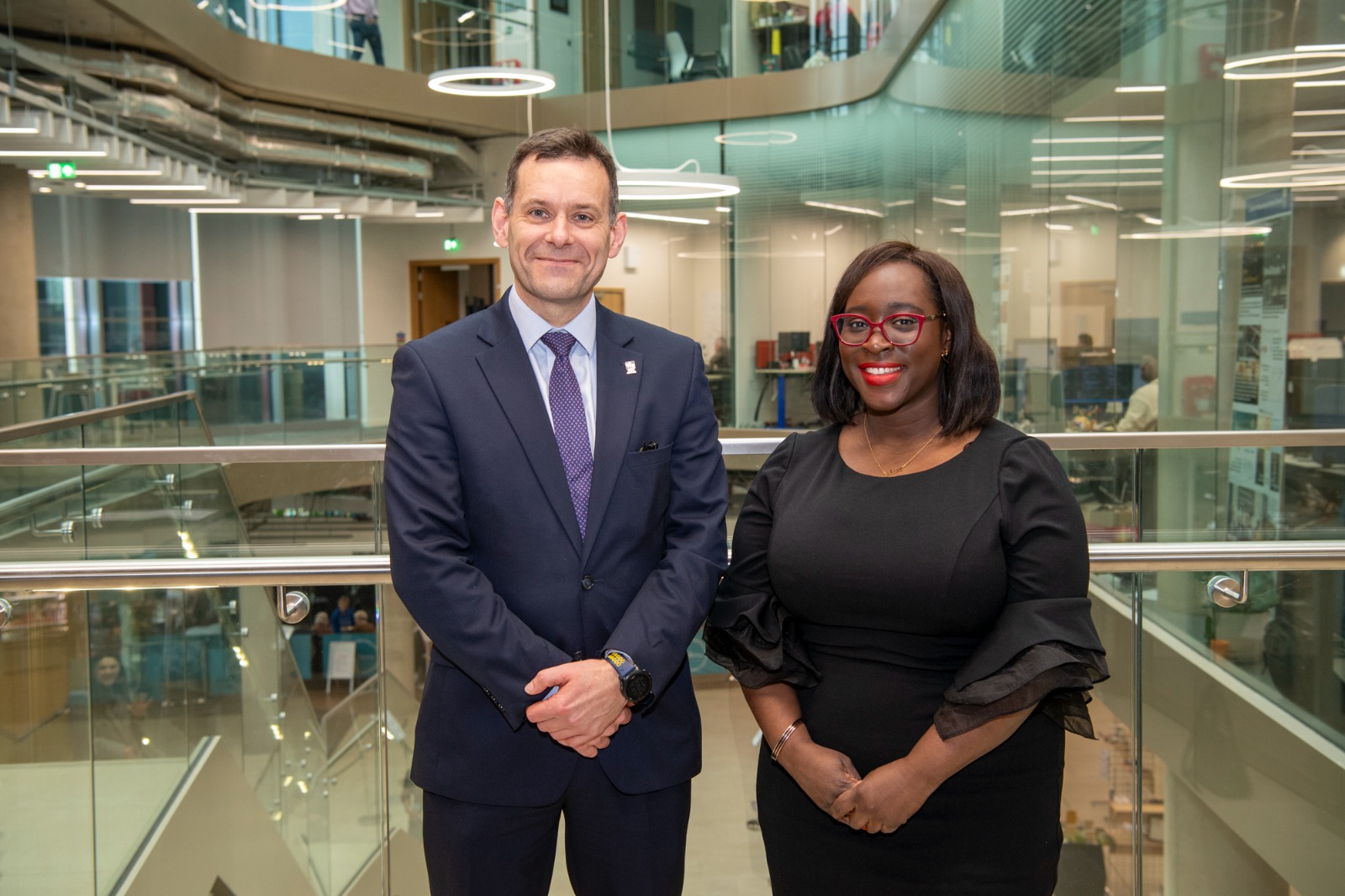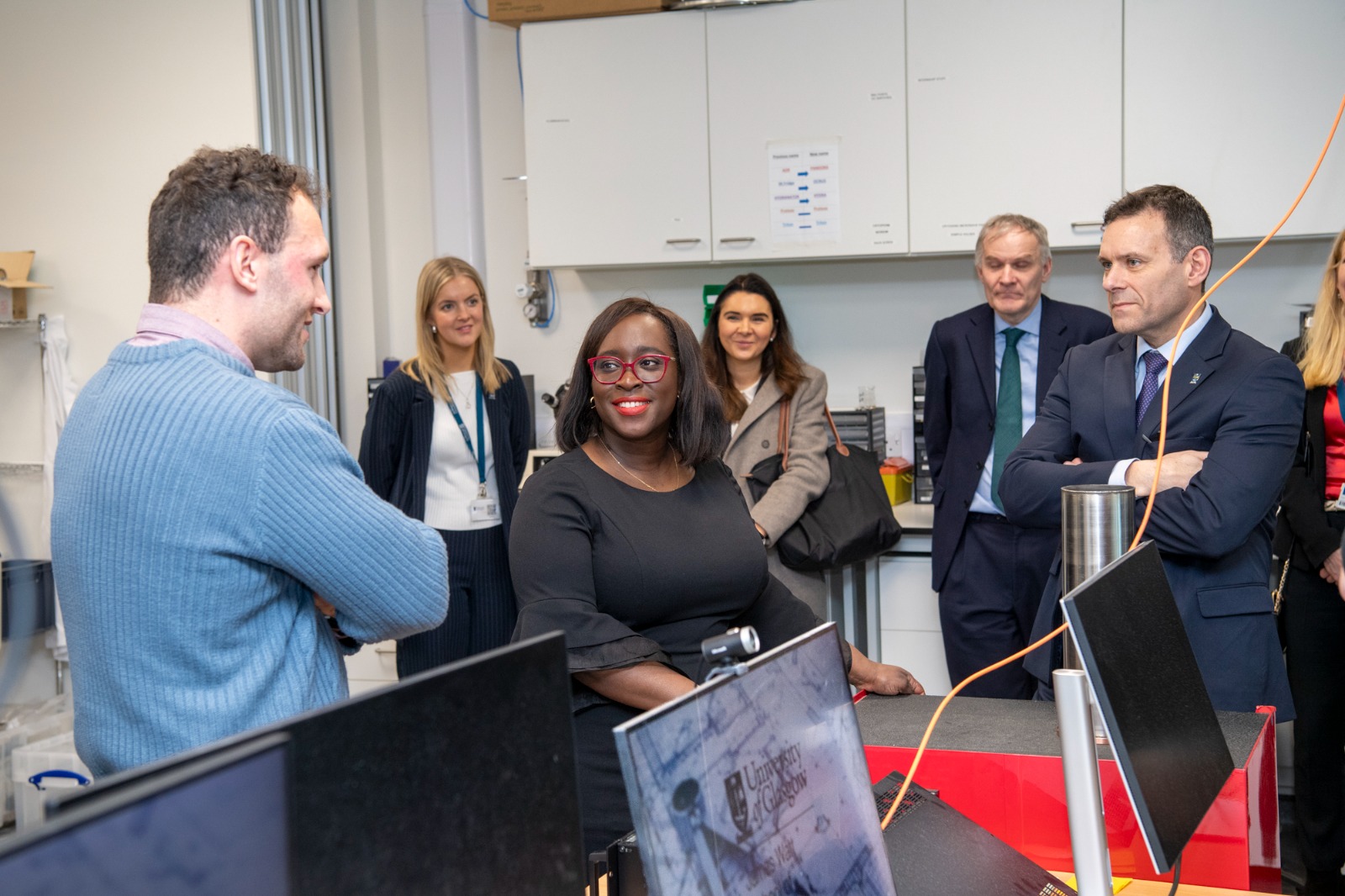UofG quantum research showcased for UK Government
Published: 4 February 2025
The University of Glasgow’s expertise in quantum technology research and development has been showcased for visitors from the UK Government.
The University of Glasgow’s expertise in quantum technology research and development has been showcased for visitors from the UK Government.
Parliamentary Secretary at the Cabinet Office, Abena Oppong-Asare MP, visited the University on Tuesday 4th February to meet staff at the Mazumdar-Shaw Advanced Research Centre (ARC).
Minister Oppong-Asare was welcomed by Professor Chris Pearce, Vice Principal for Research & Knowledge Exchange; Professor Eric Yeatman, head of the College of Science & Engineering; the James Watt School of Engineering’s Professor David Cumming and Professor Douglas Paul, and Evelyn Toma, Director of Strategy at the James Watt Nanofabrication Centre (JWNC).
Minister Oppong-Asare was given a tour of the ARC to learn more about quantum technology projects and research labs, as well as the University’s leading role in two UK quantum technology hubs.
Minister Oppong-Asare said: "The groundbreaking quantum research happening at the University of Glasgow is absolutely vital for our national security and infrastructure.
“The work I've seen today demonstrates why we're investing over £100 million in quantum technology hubs across the UK.
“This research isn't just about scientific advancement – it's about building a more resilient Britain for the future."

Minister Oppong-Asare heard about ongoing research at the Quantum Circuits Laboratory and two related startups – Quantcore and Kelvin Quantum – and the Extreme Light research group. Quantcore is working with the JWNC to develop a sovereign supply of superconducting quantum computing hardware, while Kelvin Quantum is developing cryogenic electronics for quantum applications. The Extreme Light group is building new devices taking sensitive heart and brain measurements of heart using quantum light.
Minister Oppong-Asare also heard about the University’s Centre for Quantum Technology, which aims to establish the University of Glasgow as an internationally recognised centre of excellence in quantum technology, and the University’s role in the UK Quantum Technology Hub in Sensing, Imaging and Timing (QuSIT), led by the University of Birmingham.
Quantum-enabled research at QuSIT led by the University’s Professor Miles Padgett includes the development new type of endoscope the width of a human hair, which could make medical imaging less uncomfortable for patients.

During a meeting with Professor Douglas Paul, Minister Oppong-Asare saw demonstrations of new technologies under development at the UK Hub for Quantum Enabled Position, Navigation & Timing (QEPNT).
Professor Paul is principal investigator of QEPNT, which unites nine UK universities and the National Physical Laboratory to develop new quantum timing and position sensors which can replace or augment satellite navigation systems. The new technologies will find use in transport, finance, communication systems, national security and critical national infrastructure.

Professor Pearce said: "We were pleased to welcome the Parliamentary Secretary to the ARC to discuss the University’s leading role in quantum technology research and development.
“Through QEPNT, QuSIT, and the Centre for Quantum Technology, Glasgow researchers are advancing quantum technologies that will enhance everything from national security to healthcare. Spinouts like Quantcore and Kelvin Quantum are working to bring transformative new technologies to market, helping to advance the UK's competitive edge in the global quantum technology landscape.
“Our research in these critical technologies is supported by the world-leading James Watt Nanofabrication Centre. The JWNC is a key part of the recently-announced Scotland's Critical Technologies Supercluster, helping to bridge the gap between fundamental quantum science and commercial applications, enabling the development of next-generation electronic, photonic, and quantum devices that are shaping the future of technology. Kelvin Nanotechnology, a university-owned company, provides a unique industry access model at the JWNC, enabling businesses to prototype and commercialise advanced material."

First published: 4 February 2025

